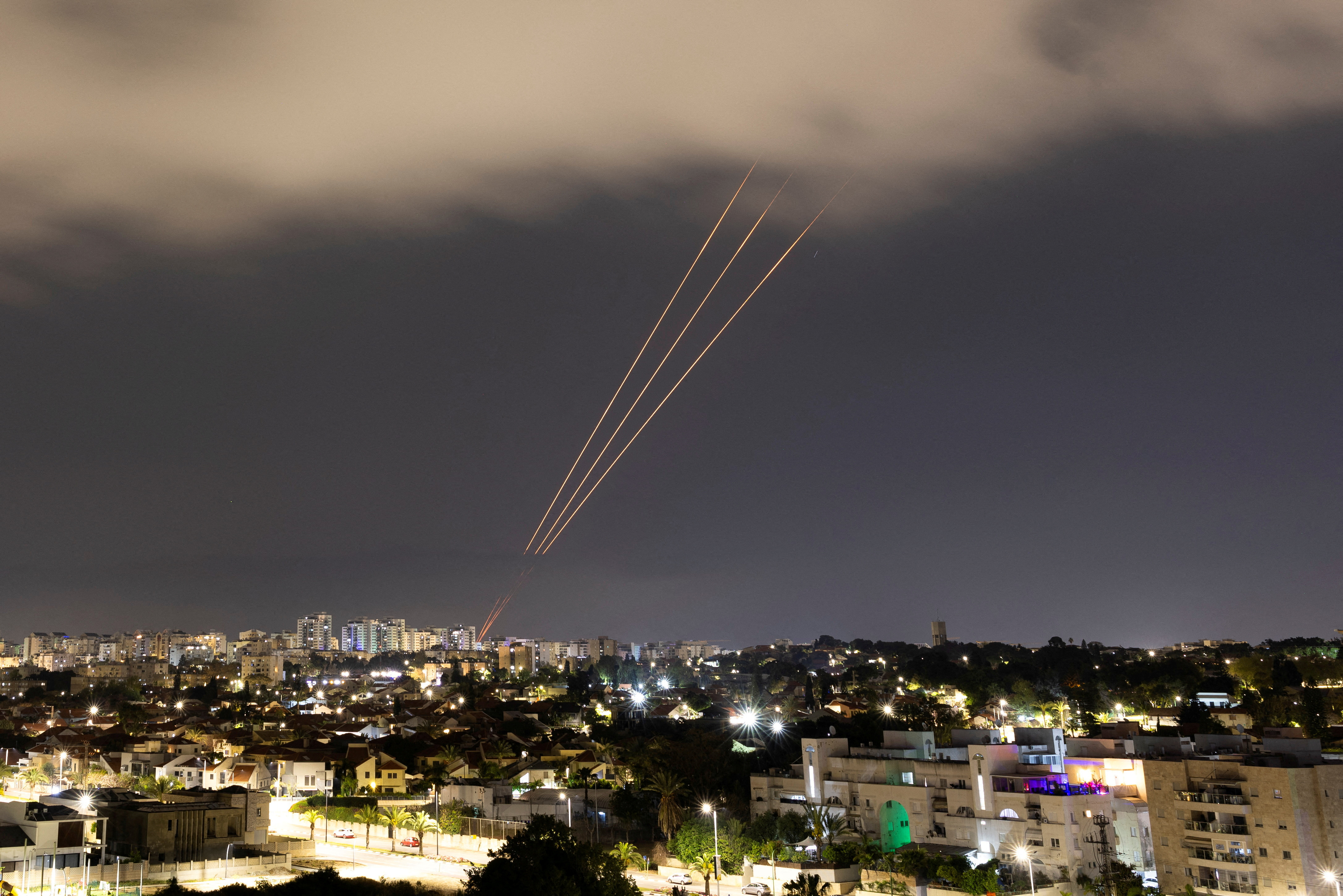
The Middle East is on tenterhooks, again. A dangerous slide into an all-out war is being feared by most even as few seem capable of doing anything substantial to stem it. Nations are rationalising their actions based on their worst fears about their adversaries. And the US, the only major power still capable of significantly influencing the trends on the ground, is at a loss as it tries to stand by its long-time ally while also reassuring others who want a de-escalation. The politics of the Middle East has never been for the faint-hearted, and in this day and age when global dysfunction is at an all-time high, the region's fissures are ready to explode in unprecedented ways.
Long In The Making
The stage was set for the latest round of escalation in the Middle East when Israel attacked Iran's embassy compound in Damascus two weeks back, killing two senior commanders of Iran's Islamic Revolution Guard Corps (IRGC) and their aides. This included Brig. Gen. Mohammad Reza Zahedi, a key figure in the Iranian operation to arm the Hezbollah. Iran put the blame quickly on Israel for the air strike, viewing it as a violation of its sovereignty and vowing retaliation. Iranian Supreme Leader Ayatollah Ali Khamenei had made it clear that Israel would be punished for the attack, while President Ebrahim Raisi had also underlined that Israeli actions would "not go unanswered".
For a long time, Israel's focus had been on Iranian proxies as it sought to contain groups like Hezbollah without directly targeting Iran. Over the last few years, Syria emerged as the central battleground for Tel Aviv and Tehran. During the recent Gaza crisis, Iranian proxies have been taking direct aim at Israel, which has been facing attacks from multiple fronts. Last week, Iran took its revenge when it launched around 300 drones and cruise and ballistic missiles at Israel in an unprecedented show of strength, but almost all of them were intercepted by Israeli air defences with significant support from the US, the UK, France and Jordan. Israel used its Aerial Defense Array, the three-tier umbrella of missile defence systems, to thwart the barrage of incoming missiles.
How The Allies Have Responded
The most critical issue before Israeli decision-makers now is to re-establish deterrence vis-à-vis Iran, with allies that helped in fending off the Iranian attack calling for restraint. The Biden administration has reportedly underscored to their Israeli counterparts that the US will not participate in any offensive action against Iran. The UK, while working with allies to "de-escalate" the situation, also wants to ensure that its efforts are aimed at ensuring a pause in fighting and getting aid into Gaza. "We must both be alongside Israel to ensure its security as much as possible, but call for a limit to avoid escalation," French President Emmanuel Macron said, adding to the growing chorus for immediate de-escalation.
More significant are the regional players such as Jordan, the United Arab Emirates and Saudi Arabia, which, in their own ways, have helped Israel and would now want Tel Aviv to take their interests into account as well. Meanwhile, the pressure on the Benjamin Netanyahu government to respond continues to be high, particularly from his own base. Israel has maintained that the confrontation with Iran was "not over yet", while Iran has warned Israel that its response "will be much larger than tonight's military action if Israel retaliates against Iran".
Not Over Yet
Tehran moved fast after the attack to telegraph the message that its response had been effective and successful, so there was no need to do anything more at this stage. Iran's joint chief of staff declared: "Thank God, we see this mission as a successful one that brought the necessary results, so we see no need to pursue it any further." This was Iran telling the world that it was willing to be measured in its response and has no intent to escalate further. Tel Aviv, for its part, has been suggesting that it would "exact a price" at a time and place of its choosing.
For a country that had lost its sense of security after the Hamas-led assault on October 7 last year, Israel had been meandering along under the now-discredited leadership of Netanyahu, who has been unable to restore confidence with his seemingly unending war in Gaza and a growing global isolation for Israel. The success in tackling the Iranian attack last week should be leveraged by Tel Aviv in shaping a new compact with the region.
New Delhi's Challenges
The world, however, continues to wait with bated breath for the next move in this dangerous game of one-upmanship. New Delhi, too, is getting caught in the quagmire, given that 17 of the 25 crew members on the MSC Aries - a commercial ship with links to Israel that was captured by Iran off the coast of the UAE last week - are Indian. New Delhi has called for "immediate de-escalation, exercise of restraint, stepping back from violence and return to the path of diplomacy".
India has been rightfully proud of the fact that it has been able to manage good ties with all stakeholders in the Middle East - Iran, Israel and the Arab states. It has key interests to pursue with all three. Because of this, Iran has allowed Indian diplomats to meet the Indian crew members of the seized cargo vessel. But as tensions continue to be high in an ever-volatile region, this balancing act of India will get tougher and Indian diplomacy will have to be in full gear to limit the costs of escalation.
[Harsh V. Pant is a Professor of International Relations at King's College London. His most recent books include 'India and the Gulf: Theoretical Perspectives and Policy Shifts' (Cambridge University Press) and 'Politics and Geopolitics: Decoding India's Neighbourhood Challenge' (Rupa)]
Disclaimer: These are the personal opinions of the author


